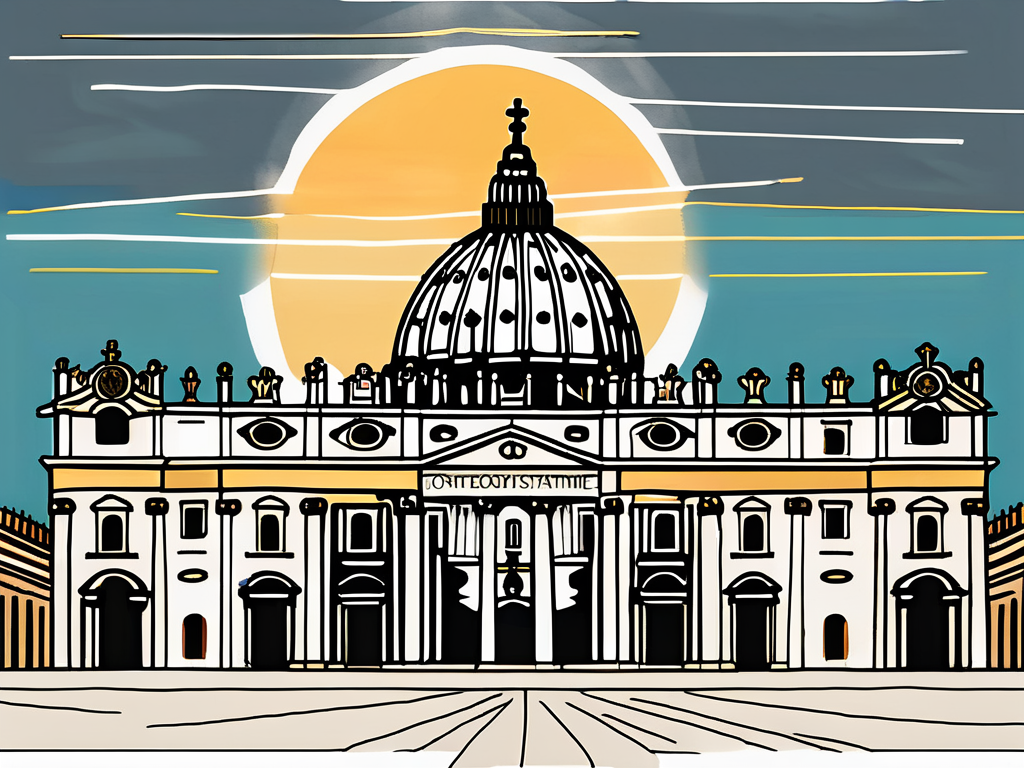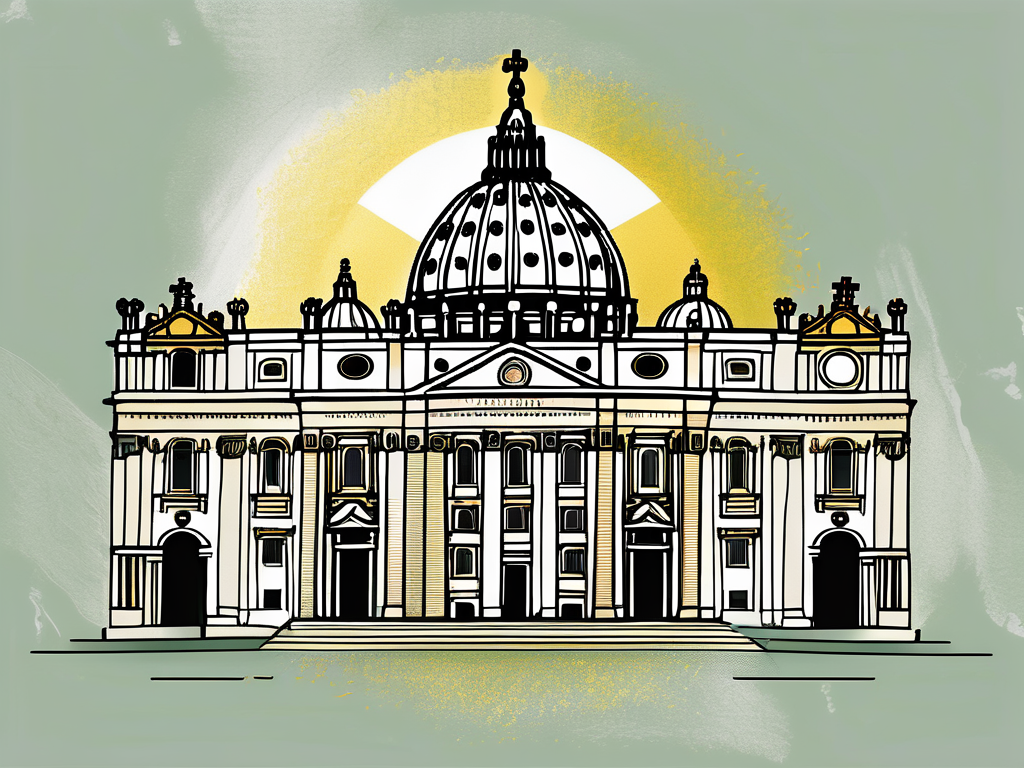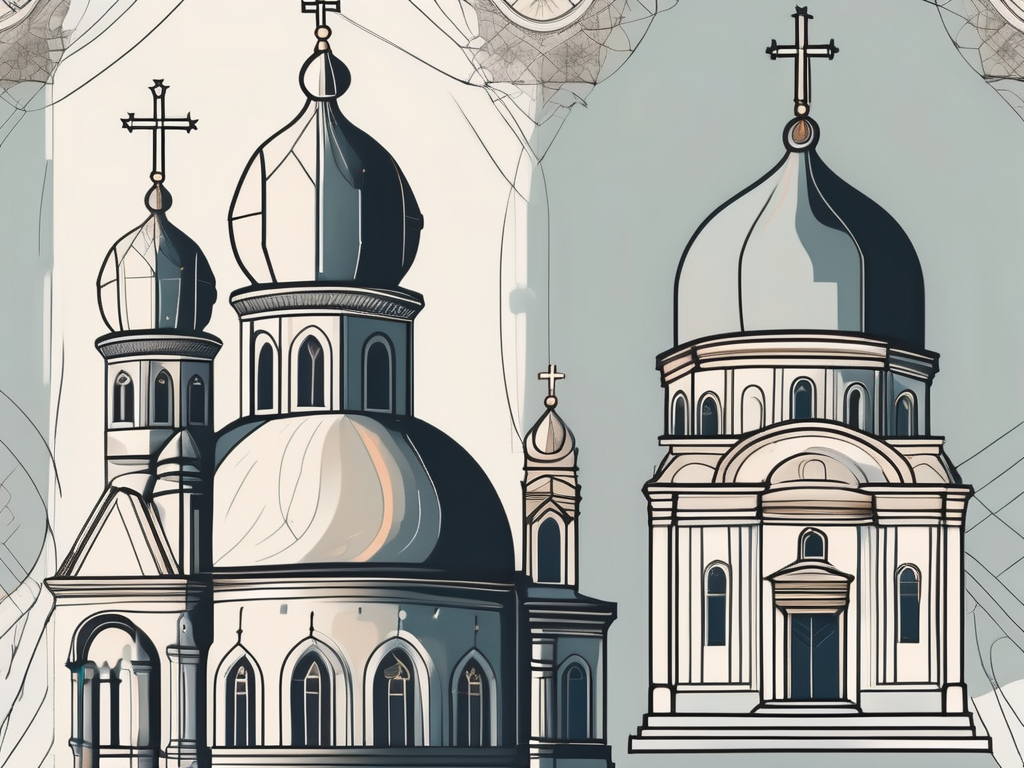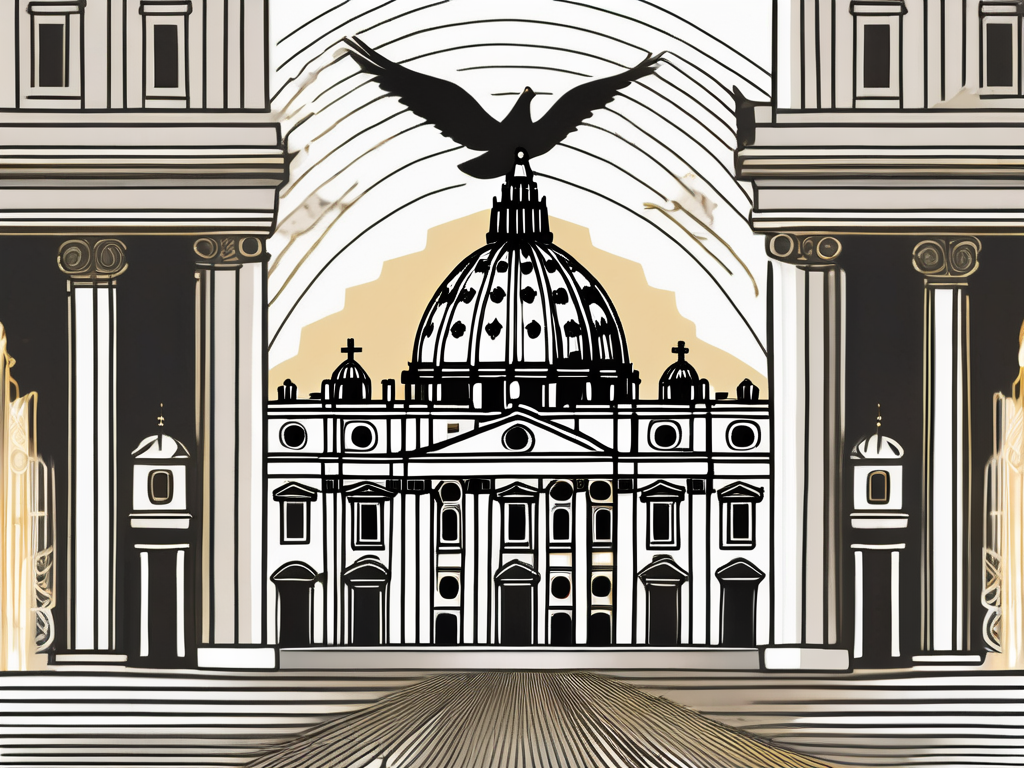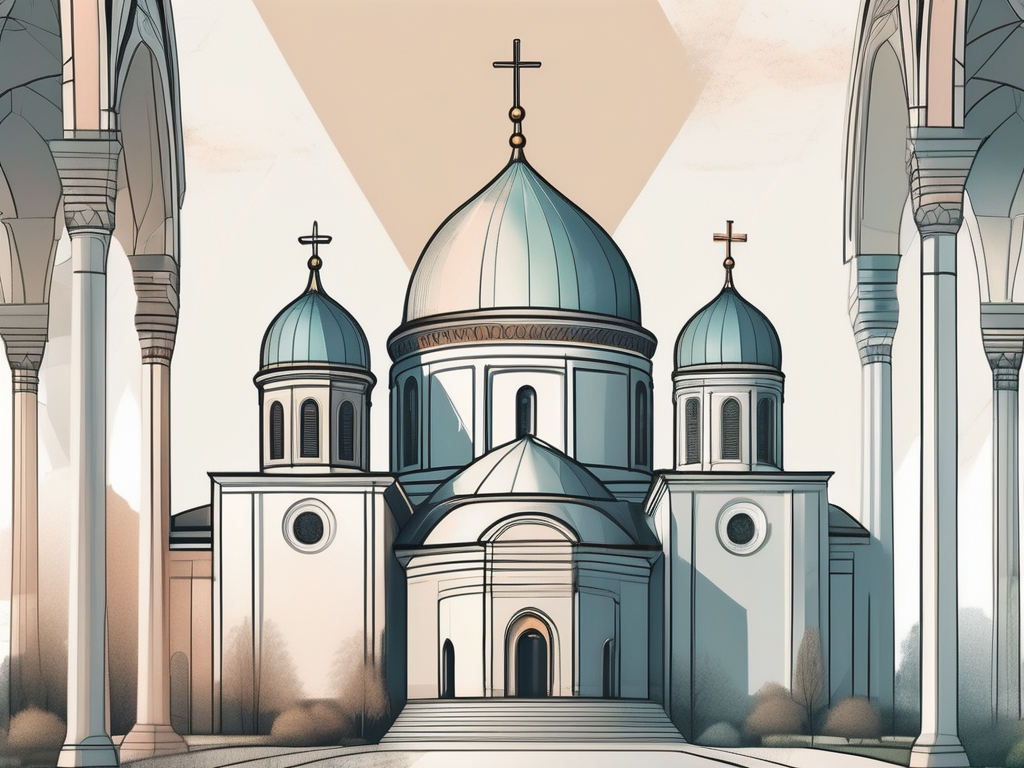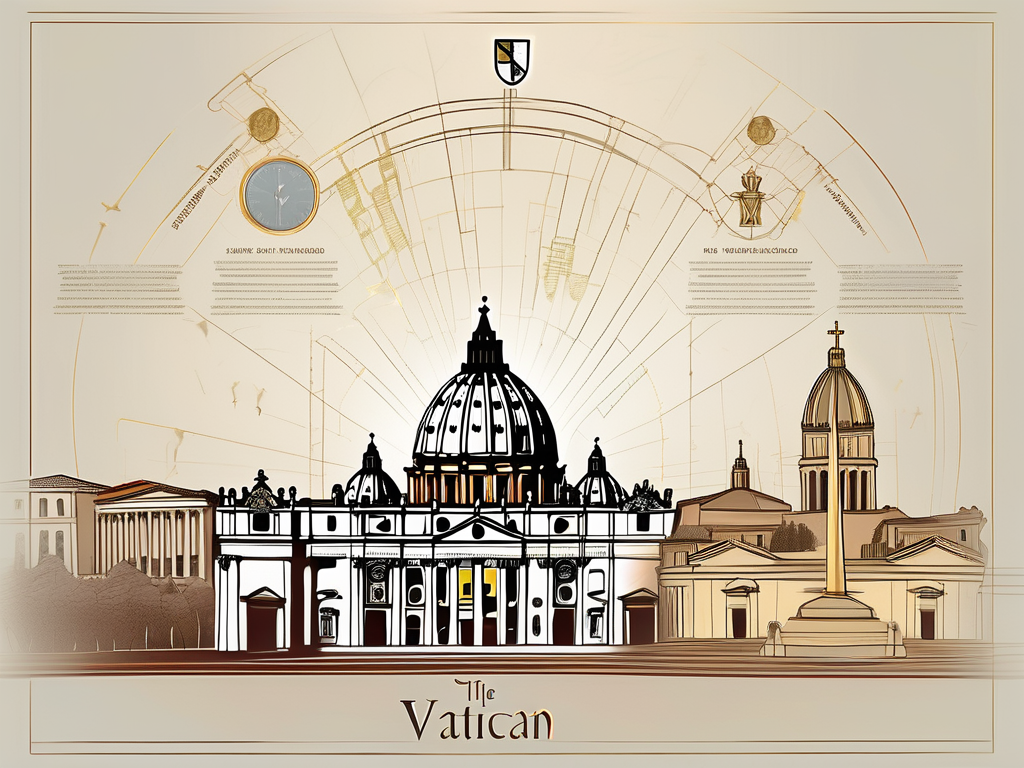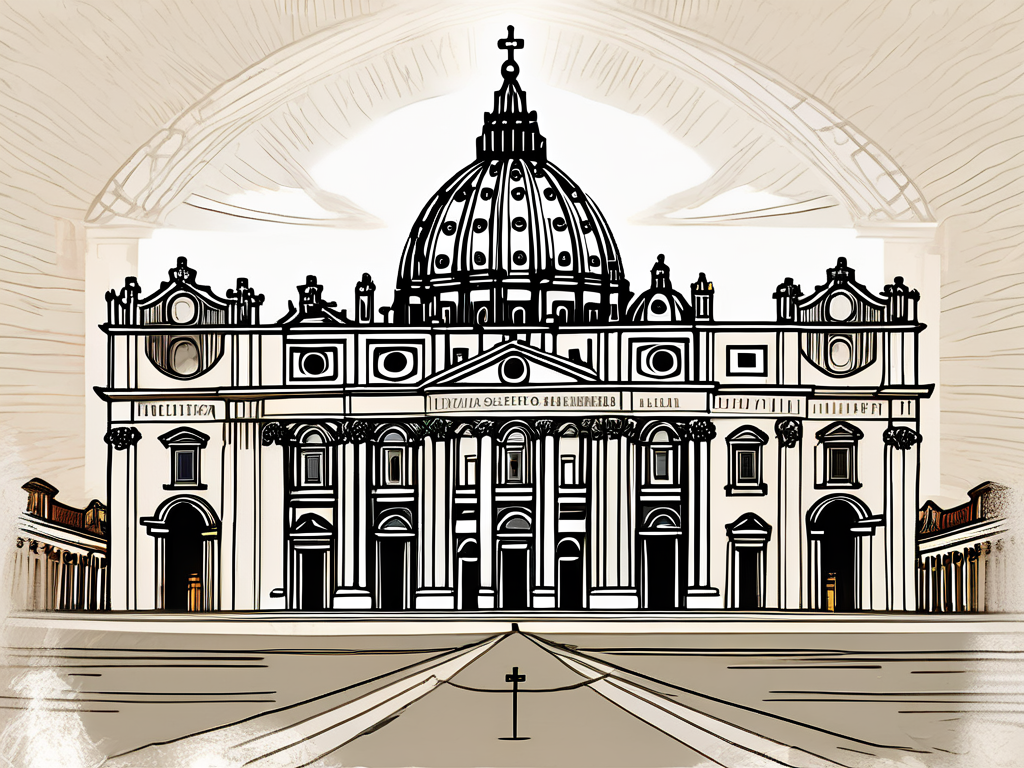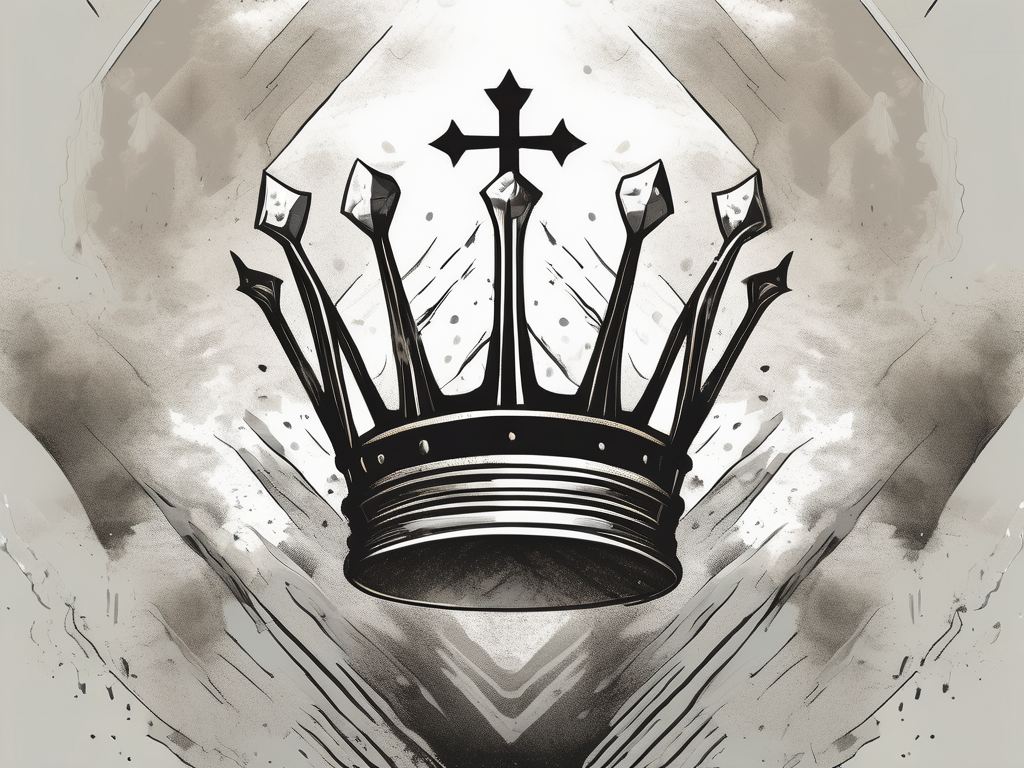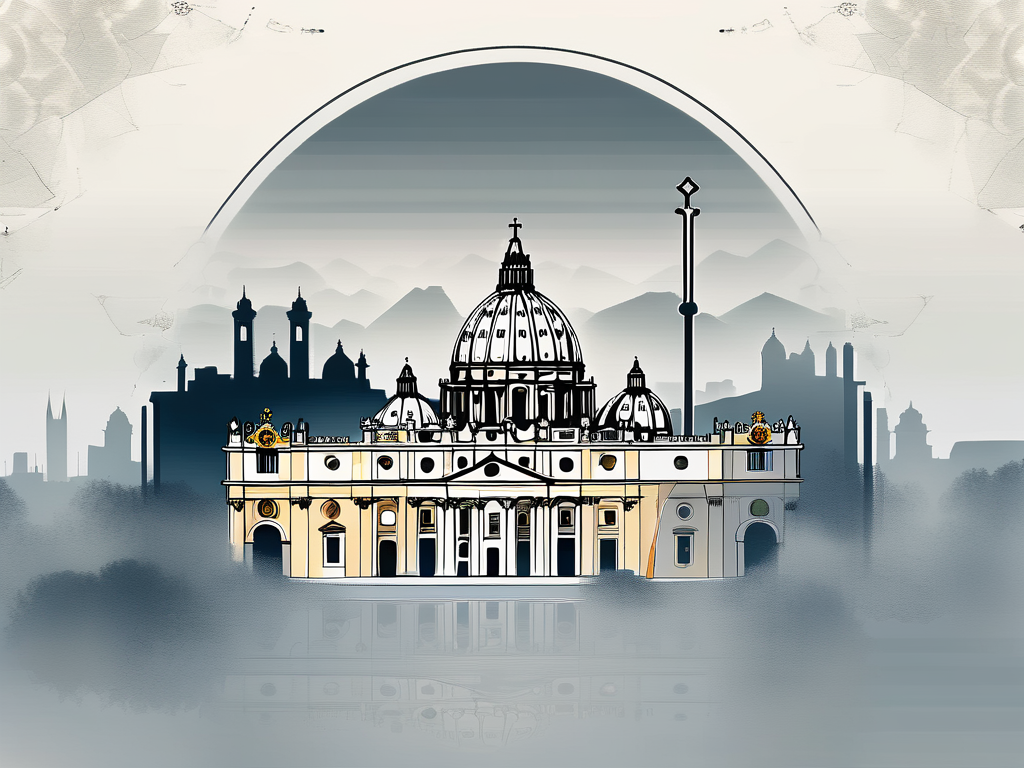In the vast tapestry of history, certain individuals stand out as beacons of influence and change. One such figure is Pope Constantine, whose legacy has left an indelible mark on the Catholic Church and the world at large. Join us as we delve into the fascinating life of Pope Constantine, explore his impact on the Church, examine his political influence, address controversies surrounding his reign, and analyze his lasting legacy.
Understanding Pope Constantine’s Early Life
Every great story begins with humble beginnings, and Pope Constantine’s life is no exception. Born in a small village, his early years were defined by modesty and a thirst for knowledge.
Constantine’s village was nestled in the picturesque countryside, surrounded by rolling hills and lush greenery. The simplicity of his upbringing instilled in him a deep appreciation for the beauty of nature and a sense of humility that would guide him throughout his life.
From a young age, Constantine displayed an insatiable curiosity, eagerly soaking up knowledge like a sponge. His parents, recognizing his potential, ensured he received a strong education that would serve as the foundation for his future endeavors.
The village school, though modest in size, was a treasure trove of wisdom. Constantine’s teachers were passionate and dedicated, instilling in him a love for learning that would shape his destiny. With an aptitude for languages and a keen interest in theology, Constantine swiftly distinguished himself among his peers.
Constantine’s thirst for knowledge was not confined to the classroom alone. He would often spend hours in the village library, poring over ancient texts and manuscripts. The musty smell of old books became a familiar scent, as he delved into the depths of history and philosophy.
His voracious appetite for learning earned him the respect and admiration of his teachers, who predicted a bright future for the young prodigy. They saw in him the potential to make a profound impact on the world, and their belief in him only fueled his determination.
Ascension to the Papacy
As destiny would have it, Constantine’s path led him to the highest office within the Catholic Church. His reputation as a learned and devout individual earned him the trust of his fellow clergy, and upon the passing of his predecessor, he ascended to the papal throne.
The momentous occasion of Constantine’s ascension to the papacy was met with great celebration and anticipation. People from all corners of the world flocked to witness this historic event, eager to catch a glimpse of the man who would lead the Catholic Church into a new era.
This monumental occasion marked the beginning of a new era for the Catholic Church and set the stage for Constantine’s monumental impact on both religious and political fronts. As Pope, he dedicated himself to the pursuit of justice, peace, and unity among nations.
Constantine’s reign as Pope was marked by his unwavering commitment to the teachings of Christ and his tireless efforts to promote compassion and understanding. He traveled extensively, spreading the message of love and forgiveness to all corners of the world.
Throughout his life, Pope Constantine remained humble, never forgetting his humble beginnings in the small village that shaped him. His early years were a testament to the power of education, curiosity, and the belief that greatness can emerge from even the most modest of circumstances.
Pope Constantine’s Influence on the Church
Pope Constantine’s reign was characterized by a series of significant reforms and policies that aimed to strengthen the Church and reaffirm its mission of spreading hope and unity.
During his time as Pope, Constantine’s visionary leadership brought about a transformative era for the Church. His unwavering commitment to the teachings of Christ and his deep understanding of the challenges faced by the Church propelled him to initiate reforms that would shape the future of Christianity.
Reforms and Policies
With a firm belief in the importance of introspection and self-improvement, Pope Constantine initiated a series of reforms within the Church. These reforms sought to address corruption and ensure that the true essence of Christianity triumphed over worldly distractions.
One of the key reforms implemented by Constantine was the establishment of stricter guidelines for the clergy. He recognized that the actions and behavior of the Church’s leaders had a profound impact on the faith of its followers. By holding the clergy to higher standards of morality and integrity, Constantine aimed to restore the trust and respect that the Church deserved.
Furthermore, Pope Constantine placed a strong emphasis on education and knowledge. He believed that a well-informed and educated clergy would be better equipped to guide and inspire the faithful. As a result, he established schools and universities within the Church, ensuring that future generations of clergy would receive a comprehensive education in theology, philosophy, and the arts.
Constantine’s policies also emphasized inclusivity and unity, extending a welcoming hand to those from different walks of life. This spirit of acceptance reinvigorated the Church and kindled a renewed sense of faith among its followers.
Recognizing the importance of the Church’s role in society, Constantine implemented social welfare programs to support the less fortunate. He established hospitals, orphanages, and shelters, providing care and assistance to those in need. These initiatives not only demonstrated the Church’s commitment to compassion and charity but also served as a beacon of hope for the marginalized and vulnerable.
Relationships with Other Religious Leaders
Pope Constantine understood the power of collaboration and sought to build bridges with leaders from other religious traditions. Through dialogue and mutual respect, he fostered connections that transcended differences, promoting understanding and compassion.
Constantine recognized that the challenges faced by the Church were not unique to Christianity alone. By engaging in interfaith dialogue, he sought to find common ground and work towards shared goals. These efforts resulted in groundbreaking interfaith initiatives that aimed to find common ground and promote the values shared by all religious communities.
Constantine’s willingness to reach out across religious boundaries set a precedent for future leaders seeking to promote peace and harmony. His legacy as a bridge-builder and advocate for interfaith cooperation continues to inspire leaders around the world to this day.
In conclusion, Pope Constantine’s reign was marked by significant reforms, policies, and initiatives that aimed to strengthen the Church and promote its mission of hope and unity. His visionary leadership and commitment to inclusivity and collaboration left an indelible mark on the Church, shaping its future and inspiring generations of faithful followers.
The Political Impact of Pope Constantine’s Reign
While Pope Constantine’s spiritual duties were of utmost importance, his role as a political figure also left an indelible mark on history.
Diplomatic Missions and Relations
Constantine’s political acumen became evident through his diligent execution of diplomatic missions. His ability to navigate complex political landscapes and foster positive relationships with other nations elevated the influence of the Catholic Church both within and outside of its spiritual domain.
Under Constantine’s leadership, the Church began to play a pivotal role in shaping international affairs, leveraging its influence to promote peace and advocate for justice in a rapidly changing world.
Role in the Byzantine Iconoclasm
One of the most defining moments of Pope Constantine’s political legacy was his involvement in the Byzantine Iconoclasm. As tensions rose between those who supported the veneration of religious icons and those who opposed it, Constantine’s voice emerged as a beacon of reason.
Utilizing his theological expertise and charm, the Pope worked tirelessly to mediate between the conflicting factions. His efforts resulted in a resolution that preserved the sanctity of religious art while fostering understanding and unity among believers.
Controversies and Criticisms of Pope Constantine
Although Pope Constantine’s reign was marked by vast achievements and positive contributions, as with any figure of influence, controversies and criticisms also accompanied his legacy.
Disputes and Conflicts
The turbulent times in which Constantine presided over the Church inevitably led to disputes and conflicts. As differing viewpoints clashed, tensions simmered, and criticisms arose regarding the Pope’s handling of certain matters.
While it is impossible to please everyone, Constantine’s commitment to transparency and open dialogue provided a platform for constructive discussions, enabling the Church to grow and evolve amidst challenging circumstances.
Theological Debates
Pope Constantine’s push for reform and his innovative interpretations of theological matters sparked intense debates within religious circles. Scholars and theologians engaged in spirited discussions, questioning the Pope’s teachings and challenging the foundations of religious doctrine.
Though this period proved contentious, it also demonstrated the elasticity of faith and the resilience of the Catholic Church to adapt to changing times while preserving its core values.
Pope Constantine’s Lasting Legacy
Despite the controversies and criticisms, Pope Constantine’s theological and political influence left an indelible mark on history, shaping the trajectory of the Catholic Church and its interaction with the world.
Influence on Future Popes and Church Doctrine
The reforms and policies enacted by Pope Constantine laid the groundwork for future generations of popes. His emphasis on transparency, inclusivity, and social justice served as guiding principles for numerous successors who further built upon his legacy.
Furthermore, Constantine’s theological interpretations sparked a renaissance of thought within the Catholic Church, challenging believers to navigate the complexities of faith in a rapidly changing world.
Pope Constantine in Modern Historical Analysis
Modern historians continue to dissect Pope Constantine’s reign and analyze his impact through a critical lens. Their studies shed light on the complexities of his era, providing deep insights into the social, political, and theological dynamics of the time.
By understanding Pope Constantine’s life and legacy, we gain a greater appreciation for the transformative power of individuals who step onto the stage of history. His profound influence on the Catholic Church and his enduring legacy remind us of the vital role that leaders play in shaping the world around them.
